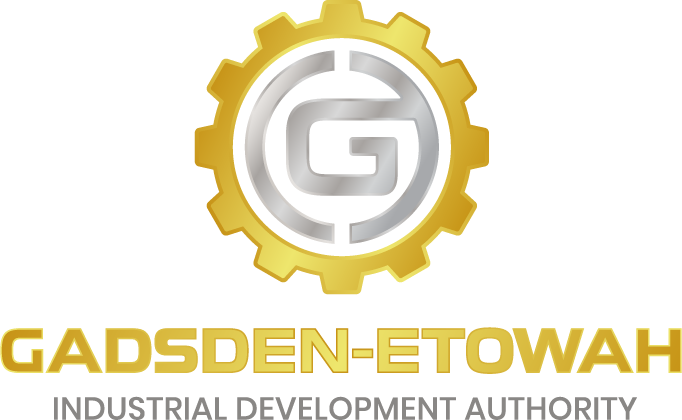Financing
Conventional Financing
Local financial institutions that engage in business lending are:
Alabama Teachers Credit UnionRon Summerall |
Keystone BankRay Smith244 South 3rd Street Gadsden, AL 35901 256-543-1950 |
BB&TChastity Smith401 Broad Street Gadsden, AL 35901 256-543-7078 |
Metro BankHarry McLendon2325 Highway 77 Southside, AL 35907 256-456-0099 |
BBVA Compass BankStephen Cummings601 Broad Street Gadsden, AL 35901 256-549-2441 |
Regions BankWilbur Masters200 Broad Street Gadsden, AL 35901 256-549-3531 |
Cadence BankJannette Mcgriff701 Forrest Avenue Gadsden, AL 35901 256-549-0233 |
Southern Bank CompanyGates Little221 South 6th Street Gadsden, AL 35901 256-543-3860 |
Exchange BankDanny Ray230 North 3rd Street Gadsden, AL 35901 256-547-2572 |
Wells FargoClay Hix250 South 7th Street Gadsden, AL 35901 256-439-2400 |
Generations BankMike Self400 West Meighan Blvd. Gadsden, AL 35901 256-543-6111 |
WinSouth Credit UnionJenni Culp Boyd110 South 26th Street Gadsden, AL 35904 256-543-7302 |
Other Financing Programs
Following is a summary of financing programs that support, or are alternatives to, conventional bank loans. Click HERE to open a new window with more information about them (.pdf file, Adobe Acrobat required.)
Industrial Revenue Bond Financing
The Industrial Development Boards of local municipalities can issue tax-free or taxable industrial revenue bonds to finance the building and equipping of a new plant or the major expansion of an existing plant. These bonds are not government obligations; unrated companies need to provide a credit enhancement, such as an irrevocable standby bank letter of credit, to guarantee repayment.
USDA Loan Guarantees
The U.S. Department of Agriculture has a program to guarantee portions of commercial bank loans to qualifying businesses and industries for the purchase of fixed assets as well as for working capital, with longer repayment terms than are generally available in the private sector.
SBA 7(a) Loan Guarantees
This is a U.S. Small Business Administration program that guarantees repayment of up to 75% of bank loans to approved borrowers for eligible projects. It can be used for both fixed asset and working capital financing in an amount up to $2 million.
SBA 504 Gap Financing
This program provides up to 40% of an eligible project’s fixed asset financing needs, with a participating bank providing 50% who gets a first lien on 100% of the collateral. The maximum amount of SBA’s loan portion is $5 million, or $5.5 million for manufacturing and “green” projects.
Revolving Loan Fund Gap Financing
The East Alabama Regional Planning and Development Commission administers a revolving loan fund to support commercial bank loans to small businesses for job-creation purposes. It can provide up to $250,000 or 1/3 of the total project cost (whichever is less) and can be used in conjunction with USDA and SBA loan programs.
State Small Business Credit Initiative
This federally funded initiative, managed by the state, was established to help increase credit availability for small businesses. It provides insurance for bank loans; guarantees portions of bank loans; and can purchase portions of bank loans for eligible purposes. The average loan size is in the range of $100,000 to $250,000.
Small Business Microloans
Federally designated intermediary lenders provide fixed asset and working capital financing for eligible small businesses who don’t qualify for conventional loans. The maximum loan term is 6 years and the maximum amount is $50,000.
Crowdfunding
This is a mechanism whereby relatively small amounts of money are solicited from a large number of individuals over the Internet, primarily via social media, in order to finance a particular project or venture. In reward-based crowdfunding, entrepreneurs pre-sell a product or service to launch a business. In equity-based crowdfunding, the contributors receive unlisted shares of a new company.
New Markets Tax Credit Financing
This is an alternative financing complement to conventional capital sources. Typically, it consists of a 7-year, below-market, interest-only loan in an amount of 15% to 20% of the total financing package, which can be in the range of $5 million to $100 million. Projects must be in qualified Low Income Community census tracts.
Small Business Investment Companies
These are private equity firms that are licensed and regulated by the SBA. They use their own capital plus funds borrowed with an SBA guarantee to make equity and debt investments in qualifying small businesses.
Certified Capital Companies
These firms make investments in selected businesses to provide needed growth capital, as contrasted to making loans. They operate in much the same way as SBICs, but CAPCOs get tax credits for making investments in small businesses in the state.
